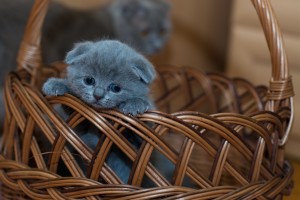by Soojin Um
Staff Writer
You’re getting ready for work, getting dressed, and grabbing a quick breakfast before heading out the door. All the while, your cat is sleeping in her bed, seemingly oblivious. You give her one last pet on the head and sneak in a quick kiss. Your cat begins to stir, but is actually just repositioning herself in her bed. You smile and shake your head as you head out the door.
Cats can seem as though they don’t care whether you come and go. But is that really the case? It turns out that cats do care, and they can care a lot. Maybe it’s not so noticeable when it’s a daily ritual as going to work. When it’s for a longer period, however, it can be a lot more apparent.
Separation Anxiety
We’ve heard about dogs having separation anxiety, but cats can have it as well. Cats can get used to daily routines, such as going to work. If our routine changes often, like a constant change in work or travel schedules, our cats can get confused and scared. This is because they are not able to get a sense of when we will return.

So what can you do to reduce separation anxiety? One thing you can try is provide plenty of distractions in the house. Try placing toys and snacks around in various rooms for your cat to discover. Some vets also suggest leaving the television or radio to your favorite channel or station so that your cat has something familiar to keep her company. Speaking of something familiar, you could also leave a piece of clothing that you’ve worn for your cat to snuggle up in while you’re away. They will appreciate having your scent around even if you’re not.
Grieving
 When a family member or another pet passes away, cats can and do grieve for them. A study was done in 1996 to see how animals displayed grief, and the results were eye opening. About half of the cats observed ate less than before, and a great majority of cats displayed behavioral changes such as sleeping more and being more vocal than usual. Some observations showed cats being around their cat parent’s urn and sometimes even rubbing themselves on it. It is always difficult and confusing for cats to deal with permanent loss. Those cats might need some extra love and attention from you. You can never completely replace the lost loved one, but you can be the one they can turn to now to be their loving guardian.
When a family member or another pet passes away, cats can and do grieve for them. A study was done in 1996 to see how animals displayed grief, and the results were eye opening. About half of the cats observed ate less than before, and a great majority of cats displayed behavioral changes such as sleeping more and being more vocal than usual. Some observations showed cats being around their cat parent’s urn and sometimes even rubbing themselves on it. It is always difficult and confusing for cats to deal with permanent loss. Those cats might need some extra love and attention from you. You can never completely replace the lost loved one, but you can be the one they can turn to now to be their loving guardian.
Depression
Extended separation and grieving can lead to depression in cats. Despite earlier views that cats cannot experience depression, recent observations have shown that cats in fact do show signs of it. Unlike for humans, doctors and psychologists can’t talk to cats about their feelings. However, we can see it through physical clues and behavioral observation. Cats can exhibit depression because of a physical ailment, but if your cat is in good health, then abnormal changes in behavior (lethargy, hair loss, changes in elimination patterns, to name a few) can signal emotional distress. If you have moved recently, or have had a death in the family, or any other substantial change in environment or routine, you may want to be extra vigilant for signs of depression. Often, just some tender loving care can do the trick. However, prolonged depression can lead to physical illness, and you may want to take your cat to the vet to see what can be done to help.
Just Love Them
Many events can cause stress in cats. They don’t take too well to changes in their routine. However, a lot of times, life’s events cannot be helped or changed, as much as we would love to. When cats feel down, confused, or scared, the best way we can help is by offering love to our feline friends. The more we are there for them, the better they will be able to deal with life’s curveballs. That shouldn’t be too hard for us to do, however. As cat owners, extra love is what we’re good at.
Please let us know your thoughts on this topic and/or give us feedback here or on Facebook.